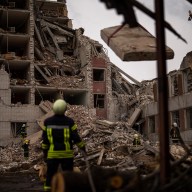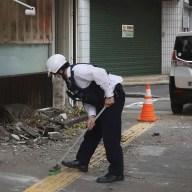By Shoon Naing and Thu Thu Aung
YANGON (Reuters) – Lawyers for two Reuters reporters jailed in Myanmar asked a judge on Wednesday to dismiss the case against them, arguing there was insufficient evidence to support charges of obtaining secret government papers.
A court in Yangon has been holding preliminary hearings since January to decide whether Wa Lone, 31, and Kyaw Soe Oo, 28, will be charged under the colonial-era Official Secrets Act, which carries a maximum penalty of 14 years in prison.
Defence and prosecution lawyers made legal arguments in front of Judge Ye Lwin on Wednesday, after the defence filed a motion to have the case thrown out last week.
The reporters’ lawyers argued that the testimony from witnesses called by the prosecution was insufficient to charge the pair. They also pointed to what they said were inconsistencies in witness testimony and procedural mistakes made by the authorities during the arrest and subsequent searches.
“At this stage, after we’ve examined 17 witnesses, there’s nothing in the preliminary testimonies so they should be released now without being charged,” defence lawyer Khin Maung Zaw told reporters after the hearing.
During previous hearings one of the police witnesses told the court he had burned his notes from the time of the arrests. A civilian witness had the location where police say the arrests was made – which emerged as a key point of contention during the proceedings – written on his hand.
Another witness said he had signed the search form recording the reporters’ arrests before the items seized from them had been filled in.
Lead prosecutor Kyaw Min Aung argued against the dismissal of the case, reiterating the prosecution’s position that the documents the reporters had in their possession were secret and that the court could assume they intended to harm the security of the country.
Kyaw Min Aung did not respond to a request for comment after the proceedings.
Myanmar’s government spokesman, Zaw Htay, told Reuters by telephone that under Myanmar’s constitution the courts were independent, “so the judge will decide whether to dismiss the case or not”.
Judge Ye Lwin adjourned the proceedings until April 11, when he is expected to rule on the dismissal motion.
“WE ARE NOT TRAITORS”
Wa Lone and Kyaw Soe Oo have been in custody since their arrests on Dec. 12.
The journalists had been working on a Reuters investigation into the killing of 10 Rohingya Muslim men in the village of Inn Din, in western Myanmar’s Rakhine state, during an army crackdown that has sent nearly 700,000 people fleeing to Bangladesh.
They have told relatives they were arrested almost immediately after being handed some rolled up papers at a restaurant in northern Yangon by two policemen they had not met before, having been invited to meet the officers for dinner.
Police witnesses, however, have said the reporters were stopped and searched at a traffic checkpoint by officers who were unaware they were journalists, and found to be holding in their hands documents relating to security force deployments in Rakhine.
In its argument, the defence said the papers contained only publicly available information and could not be deemed secret.
Senior U.N. officials, Western nations and press freedom advocates have called for the release of the journalists and diplomats from France, Sweden, the United States and the United Nations were among those who attended Wednesday’s hearing.
“What the testimony heard so far has revealed…is a poorly prepared case, inconsistent statements by police witnesses, and what appears to be a blatant disregard for proper police procedures,” said the embassy of Denmark in a statement released before the hearing.
After the hearing Wa Lone told journalists that he was not “a traitor of the country”.
“We only did our work as reporters. I want the people to understand that and want to tell them that I never betrayed the country,” said the reporter on the steps of the courthouse as he was being pushed inside a police truck.
Kyaw Soe Oo said the news media were important for Myanmar’s democracy.
“We followed the news and uncovered the Inn Din story. The reason why we did it is to give the vitally important information to the country,” he said.
Myanmar’s ambassador to the United Nations, Hau Do Suan, said last month that the journalists were not arrested for reporting a story, but were accused of “illegally possessing confidential government documents”.
(Reporting by Shoon Naing and Thu Thu Aung; Additional reporting by Antoni Slodkowski, Yimou Lee, Simon Lewis and Sam Aung Moon; Editing by Alex Richardson)

















